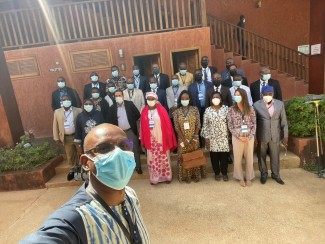UNODC Regional Workshop on Drug Monitoring and Information Systems in West Africa

In many parts of the world, information on illicit drug use is non-existent or extremely limited. Where data exist, they are rarely collected in a harmonised manner and, therefore, the comparability of information between countries is generally low. National Governments, as well as regional and global bodies, have all committed themselves to improving the quality and comparability of information collected on illicit drug use. These include the Lisbon Consensus, discussed on 20 and 21 January 2000, which envisages the principles, structures and indicators that would form the basis of an effective strategic information system.
In order to provide technical assistance to better streamline the collection, analysis and reporting of data on drug use and to understand the extent and characteristics of drug use in French-speaking countries in West Africa, UNODC is organizing a regional workshop on drug monitoring and information systems: Improving drug surveillance and information systems to strengthen the implementation of the Lisbon Consensus in French-speaking West African countries
The workshop brought together 34 people in Senegal to (1) explore opportunities for collaboration and improvement of national and sub-regional drug monitoring and information systems based on Lisbon Consensus indicators; (2) Share information on ongoing national, regional and international efforts to improve drug monitoring and information systems; (3) Develop coordination strategies to improve the availability, quality, sharing of data and information on the drug situation in countries and the region ; (4) Promote a regional community of specialists to improve drug surveillance and information systems.
The exchanges were organized in three sessions (Coordination and governance of drug monitoring and information systems; Tools for collecting drug surveillance and information systems; Drug Monitoring and Information Systems methodologies and allowed (1) to identify stakeholders of drug surveillance and information systems, (2) to exchange similarities and differences by sharing experiences of best practices, (3) and to promote multisectoral collaborations.
At the end of the regional workshop, UNODC will continue to work with individual countries to strengthen the implementation of the Lisbon Consensus.
